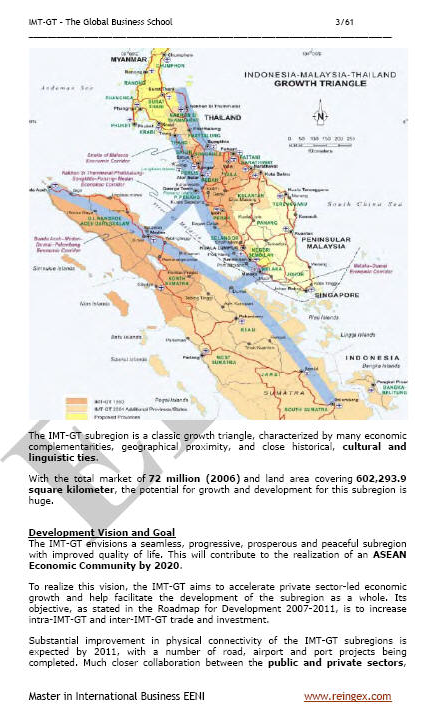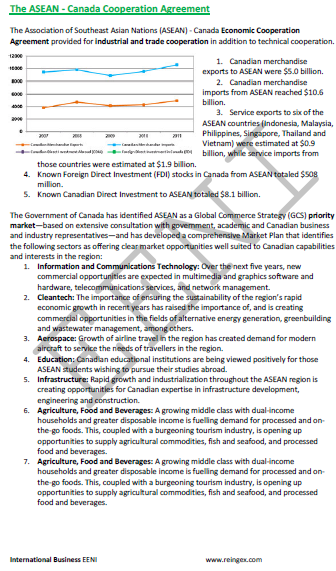Business in Indonesia

Foreign Trade and Business in Indonesia - Jakarta
- Introduction to the Republic of Indonesia (Southeast Asia)
- Indonesian Economy
- Indonesian Petrol and Gas
- Indonesian industrial states
- Infrastructure facilities in Indonesia
- Indonesian Banking sector
- Indonesian International Trade
- Sabang Freeport zone
- Business in Jakarta
- Investment in Indonesia
- Case Study:
- Telkom Group
- PT Panggung Electric Citrabuana
- Indonesian Muslim Businesspeople
- Sandiaga Salahuddin Uno
- Abdul Latief
- Aburizal Bakrie
- Basrizal Koto
- I.R. Ciputra
- Access to the Indonesian Market
- Business Plan for Indonesia
The purposes of the subject “Foreign Trade and Business in Indonesia” are the following:
- To analyze the Indonesian Economy and Global Trade
- To know the business opportunities in Indonesia
- To explore the Indonesian trade relations with the country of the student
- To know the Indonesian Trade Agreements
- To examine the profile of Indonesian businesspeople and companies
- To develop a business plan for the Indonesian Market
Global Trade and Business in Indonesia
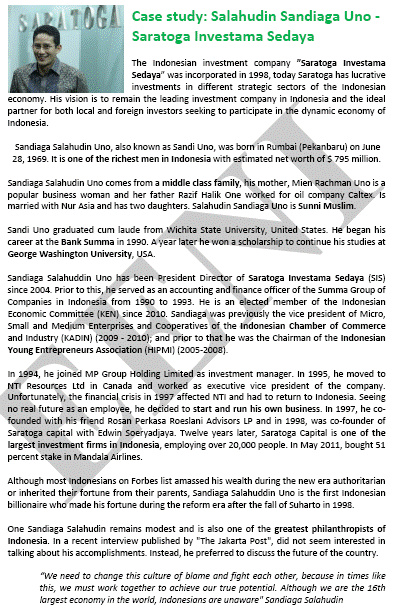

The Subject “Foreign Trade and Business in Indonesia” belongs to the following Online Programs taught by EENI Global Business School:
Doctorate: Islamic Business, World Trade.
Masters: International Business, Foreign Trade.
Languages:  (
( Indonesia
Indonesia  Indonesie).
Indonesie).
- Credits of the subject “Doing Business in Indonesia”: 3

- Duration: three weeks
EENI in Bahasa Indonesia: Master Bisnis Internasional.
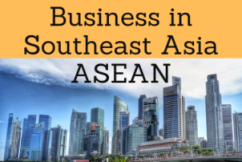
Masters adapted to  Indonesian Students.
Indonesian Students.
International Trade and Business in Indonesia.
- Access to the Nanning-Singapore Corridor
- Pan-Beibu Gulf Economic Zone
- Access to the East-West Corridor (Myanmar-Vietnam)
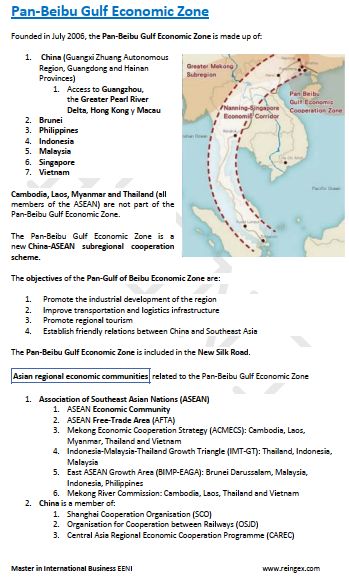

Indonesian Market Access and Trade Agreements:
- ASEAN
- ASEAN Free-Trade Area
- East ASEAN Growth Area
- Trade Agreements (ASEAN member): Australia-New Zealand, Canada, China, India, Japan, Korea, Russia, the U.S., the EU, and Pakistan
- EU-Indonesia Partnership and Cooperation Agreement
- Indonesia-Malaysia-Thailand Growth Triangle
- APEC
- India-Indonesia Agreement
- Regional Comprehensive Economic Association
- Islamic Trade Preferential System (OIC)
- Indian-Ocean Rim Association
- Indonesia-Australia Comprehensive Economic Partnership Agreement
- Chile-Indonesia Agreement
- Japan-Indonesia Agreement
- Indonesia-Pakistan Agreement
- Global System of Trade Preferences
- Trans-Pacific Partnership (CPTPP) - Candidate Country
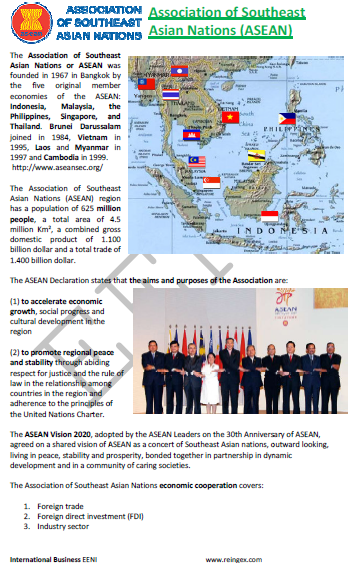

- WTO
- GATS
- Agreement on Sanitary Measures
- Agreement on Technical Barriers to Trade
- Agreement on Preshipment Inspection
- Agreement on Safeguards
- Trade Facilitation Agreement
- TIR Convention (Road Transport, IRU)
- WCO
- BIC (Containers)
- Chicago Convention (ICAO)
- International Maritime Organization
- Customs Convention on Containers
- Istanbul Convention - not a member
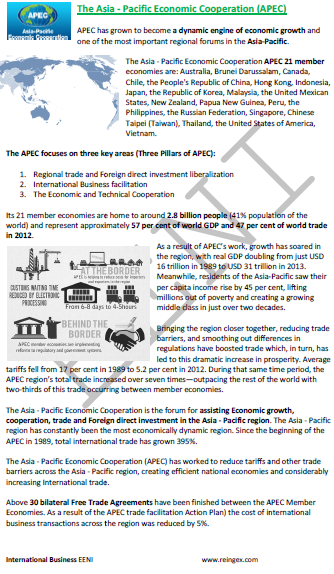

- OIC
- Committee for Economic Cooperation
- Islamic Chamber of Commerce
- Islamic Centre for Development of Trade
- Statistical Economic Centre for Islamic Countries
- Islamic Development Bank
- Asia-Middle East Dialogue
- Arab Development Funds
- OPEC Fund for International Development (OFID)
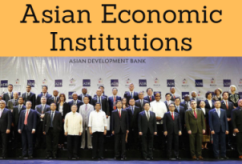
- ESCAP
- Asian Development Bank
- Boao Forum for Asia
- Asia Cooperation Dialogue
- East Asia-Latin America Cooperation
- Colombo Plan
- Africa-Asia Strategic Partnership

- UN
- UNCTAD
- ITC
- UNCITRAL
- WIPO
- WB
- WTO
- IMF
- PEEC
- OECD (Key Partner)
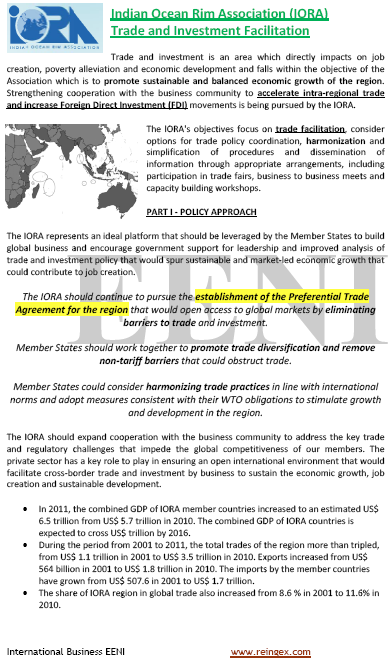
- The Republic of Indonesia is the biggest archipelago nation in the World, comprising 17,508 islands stretching along 5,120 kilometers from east to west, and 1,760 kilometers from north to south
- Total population of Indonesia: 255 million people
- The main Indonesian ethnic group are Javanese (42% of the Indonesian population)
- Indonesian Diaspora: 8 million of Indonesians
- Indonesian Capital: Jakarta (10 million people)
- 30 million people live on the island of Java, the most populous island of the World
- Indonesian land borders: Papua New Guinea, East Timor, and Malaysia
- Neighboring countries: Singapore, the Philippines, Australia, and the Indian territory of Andaman and Nicobar Islands
- Bahasa Indonesia (Malay) is the correct term for Indonesian language (Official language)
- Other Indonesian Languages are Javanese (84% of the Indonesian population) and Sundanese (34%)
- More than 700 regional languages
- Type of Government of Indonesia: Unitary Presidential constitutional Republic
- Area of Indonesia: 1,904,569 km²
- Indonesian independence: 1949 (The Netherlands)
Main religion in Indonesia: Sunni Islam (209 million, 87% of the Indonesian population).
- Fiqh (Islamic Jurisprudence): Shafi
- The Indonesian Constitution implements freedom of religion
- Other religions in Indonesia:
- Hinduism (3 million)
- Christians (20 million)
- Buddhism
- Confucianism

Indonesia is a member of the Islamic Civilization.
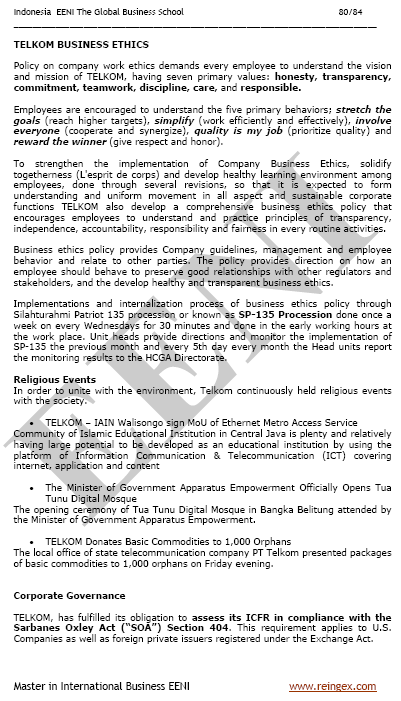
Indonesian Economy:
- Indonesia is rich in natural resources
- In the agricultural sector, Indonesia has become self-sufficient in rice and does not need to import this staple food as it had for years
- 90% of the Indonesian population works in agriculture
- The fluctuations in the global prices of traditional export commodities have led to a change in the recent years in the Indonesian economy structure
- Indonesia produces various types of cars, lorries, buses, and motorcycles under Licensing from foreign producer
- Indonesia also produces electronic equipment and electrical appliances
- The Indonesian Aviation industry has been growing, and new production lines are coming on-stream as well its Universal Maintenance Centre for Overhaul of aircraft engines. The aircraft produced are for national use as well as for export
- The Indonesian industrial estates are available in all provinces of Indonesia. The large-scale industrial estates are found in Jakarta, West Java (Bekasi, Karawang, Purwakarta), Banten (Tangierang, Serang), Central Java (Semarang, Cilacap), Yogyakarta (Piyungan), East Java (Surabaya, Gresik, Sidoarjo, Pasuruan, Probolinggo), North Sumatera (Medan), West Sumatera (Padang), Lampung, Riau (Batam Island, Bintan Island), South Sulawesi (Makassar), and East Kalimantan (Bontang)
- Tourism is gaining a more important sector as a foreign exchange earner
- Currency of Indonesia: Indonesian rupiah (Rp) (IDR)
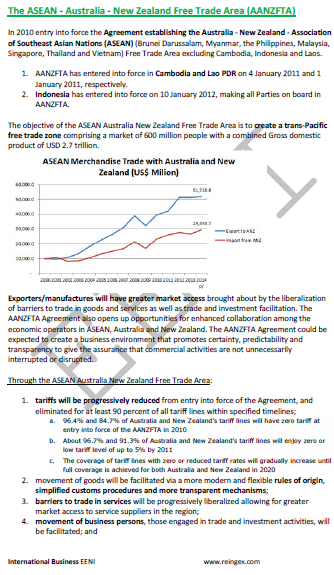

International Trade of Indonesia.
- Petrol and gas contribute to 70% of total export earnings and 60% of the Indonesian Government revenues
- Besides petroleum and liquefied natural gas, forestry products, rubber, coffee, tea, tin, nickel, copper, palm products, and fish make significant contributions to the export earnings of Indonesia
- In the recent years some steps have been taken to promote and stimulate the non-petroleum exports, which include handicrafts, textiles, precious metals, tea, tobacco, cement, fertilizers as well as manufactured products
- Air transport and sea ports are being widespread to cater the growing traffic on both local and International sectors, of passengers as well as freight
- The Port of Jakarta is the largest Indonesian seaport and one of the largest seaports in the Java Sea basin, with an annual traffic capacity of 45 million tones of cargo and 4,000,000 TEU (twenty-foot equivalent unit)
